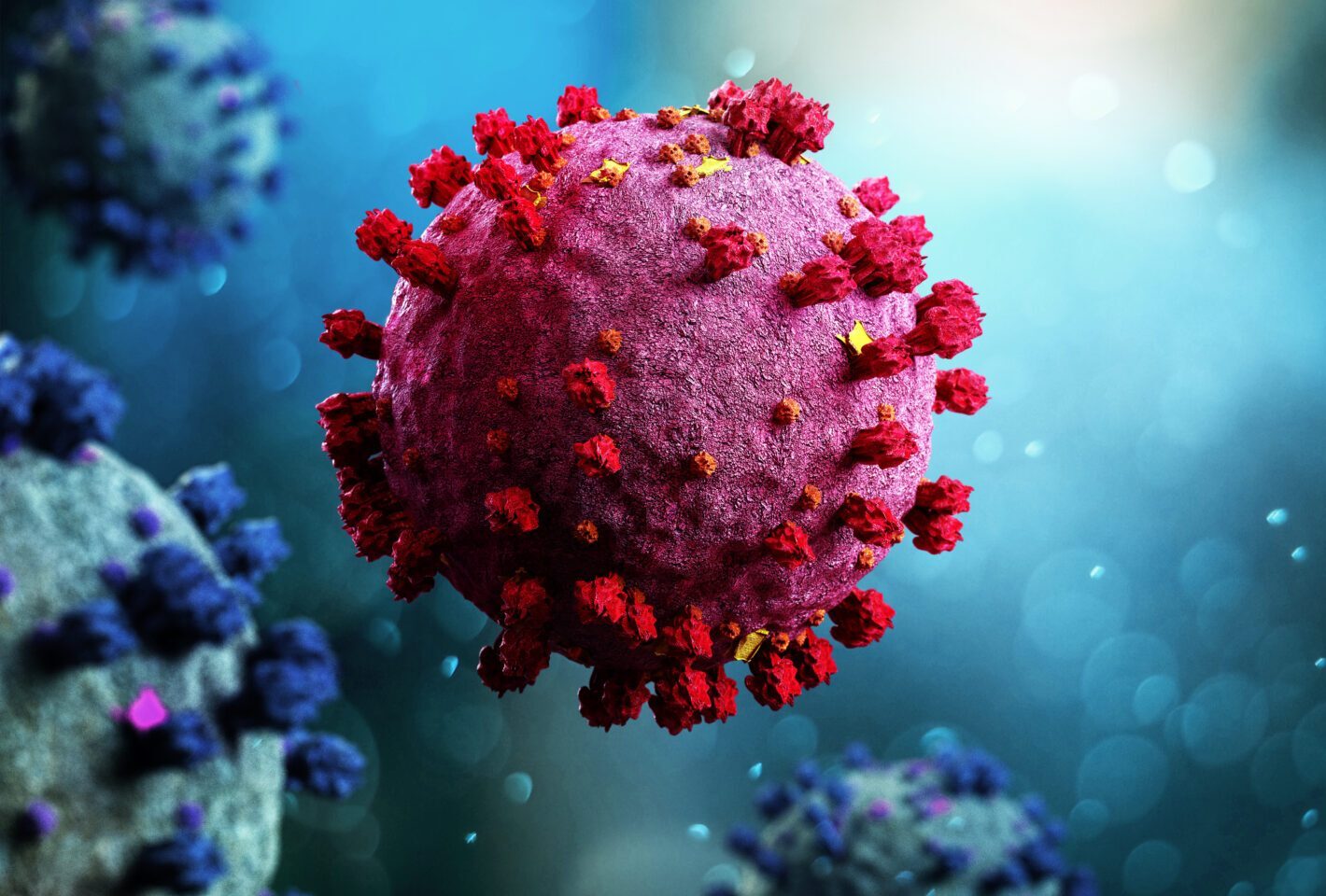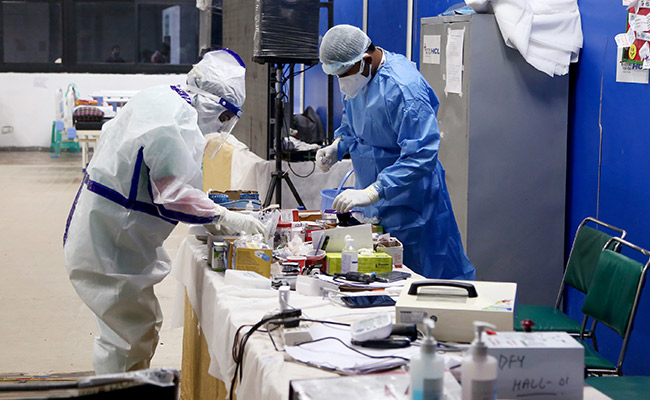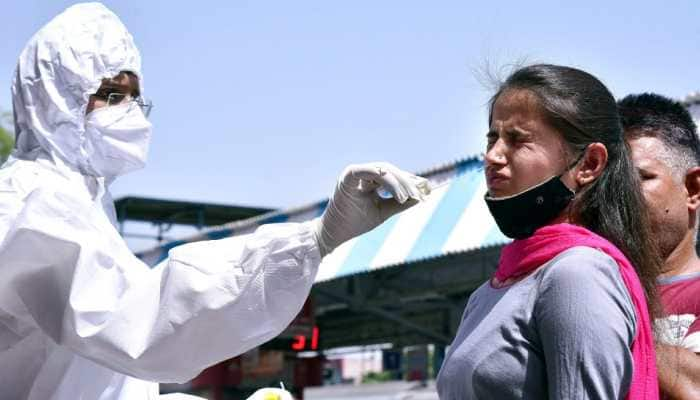Delhi Reports 429 COVID-19 Instances In A Day, From The Last 7 Months.
Delhi Seeing Rise in Covid-19 Cases

Delhi reports 429 COVID-19 instances in a day, the most in the previous seven months.
Delhi experienced the highest Covid-19 instances on Sunday in more than seven months, with 429 new infections. According to statistics from the city health department, the positive rate rose to 16.09%.
One Covid-related fatality was reported in the city. Covid was not the primary cause of death, according to the health warning, however.
Twenty-six thousand five hundred thirty people have died due to the sickness. In Delhi, there were 416 new cases of Covid on Saturday, with a 14.37 per cent positive rate. The city reported 295 coronavirus infections on Thursday, with a positive rate of 12.48 per cent.

On Wednesday, there were 300 cases in the nation’s capital, two fatalities, and a 13.89% positive rate. Delhi recorded 214 cases with a positive response rate of 11.82% on Tuesday, 115 patients with a positive response rate of 7.45% on Monday, and 153 points with a positive response rate of 9.13% on Sunday.
Arvind Kejriwal, the chief minister, stated on Friday that the Delhi government is monitoring the increase in Covid cases in the city and is “prepared to handle any scenario.”
Only three deaths have been confirmed in the last four to five days. He had earlier said that one could not draw such a conclusion, even though it has been determined that Covid may have been “incidental” and that comorbidity brought on the mortality. All three patients had “very severe” comorbidities.
After holding a review discussion on the Covid issue in Delhi, Kejriwal assured the media that the city government was taking all required steps and that there was no need to worry.
A spike in the number of new Covid cases in Delhi over the past few days has corresponded with a significant rise in H3N2 influenza cases across the country.
Delhi had seen a decline in the number of new cases over the previous six months; on January 16, it reached zero for the first time since the pandemic began in this metropolis.
)
Due to the new instances, the city’s Covid total has increased to 20,10,741. 2,667 Covid tests were carried out on Saturday, per the data.
According to the health department, 879 patients receive care at home in isolation at the city’s approved Covid hospitals, where 87 of the 7,989 beds are occupied. It was reported that there are now 1,395 active infections.
According to medical experts, the current increase in Covid infections in Delhi is thought to be related to the virus’s novel XBB.1.16 strain.
Yet, they still maintain that there is no cause for concern and that people should behave in a Covid-appropriate way and get vaccine boosters.
Furthermore, they assert that the rise in cases may be brought on by the fact that more people are getting Covid tests as a prophylactic precaution when they get the flu and exhibit symptoms like fever and other flu-like symptoms.
The rise in influenza cases is due to an H3N2 subtype virus. The H3N2 virus is the most common strain to result in hospitalisations. The signs include a fever, a persistent cough, and a runny nose.
Fever, coughing, and breathing issues are some of the symptoms of COVID-19, and their severity can range from mild to severe. The primary method of virus transmission occurs when an infected person talks, coughs, or sneezes. If you touch your face after touching a surface with the virus, the infection may also spread.
To help stop the spread of Covid-19, it may be helpful to practise excellent hand hygiene, wear a mask in public, practise social distancing, avoid large gatherings and get vaccinated when a vaccine is available.
If you suspect that you may have COVID-19 or have been in close contact with someone who has tested positive for the virus, it is imperative that you consult your healthcare provider for guidance on testing and treatment.

COVID-19 significantly impacts people’s daily life, the economy, and global health. As of the knowledge cutoff in September 2021, there had been more than 200 million verified cases of COVID-19 worldwide, along with more than 4 million deaths that had been documented. It’s important to remember that underreporting and other factors could mean more illnesses and fatalities.
In addition to severely taxing healthcare systems worldwide, the epidemic has severely disrupted business, tourism, and education. Governments and organisations have tried to stop the spread of the virus using a variety of tactics, including lockdowns, travel restrictions, and vaccine efforts.
Vaccines against COVID-19 have been developed and authorised for emergencies, and various countries have begun vaccination campaigns. The vaccines have been demonstrated to be highly efficient at preventing COVID-19-related severe illness and hospitalisation, making them a vital tool in the fight against the pandemic.
It’s critical to continue paying attention to the guidance and recommendations of public health officials and medical experts to assist in stopping the spread of COVID-19, particularly as new COVID-19 variants emerge. Also, it’s crucial to prioritise mental health and get help when necessary because the epidemic has severely influenced many people’s mental health.
Once again, it’s essential to remember that underreporting and other factors could lead to a higher actual number of cases and fatalities.
The epidemic’s effects are still on the world’s healthcare systems, way of life, and economy. Many countries have continued to enforce regulations, including lockdowns, social exclusion, and mask requirements to restrict the virus’s spread.
Many novel viral variants have been identified, some appearing more contagious and may be more resistant to current vaccinations. Updated or booster vaccines are still being developed and distributed to combat these new types.
As the epidemic spreads, it’s critical to be informed of new developments and to continue adhering to public health guidelines to protect yourself and others. When at all possible, this entails getting immunised, practising good hand hygiene, covering your face in public, and avoiding large gatherings. Also, it’s critical to prioritise mental health in these challenging times and, if required, seek support.
Edited by Prakriti Arora




